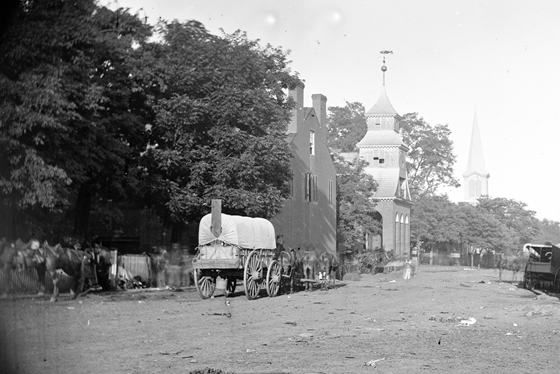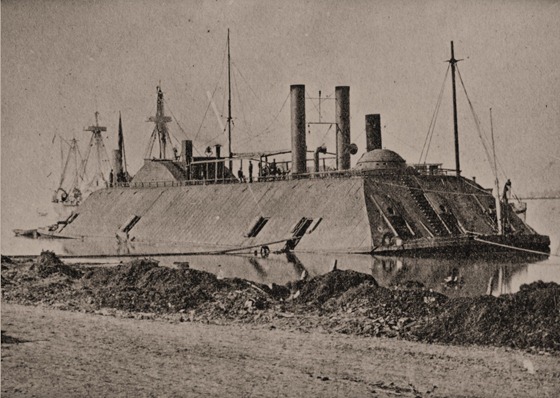July 15.—A body of Union troops, numbering about six hundred men, under the command of Major Miller, Second Wisconsin cavalry, attacked the combined rebel forces of Rains, Coffee, Hunter, Hawthorne, and Tracy, numbering about sixteen hundred, at a point eight miles beyond Fayetteville, Arkansas, and routed them with great loss.—David E. Twiggs, who was dismissed from the United States army for treason, died at Augusta, Ga.
—This morning the rebel iron-clad ram Arkansas passed down the Yazoo River into the Mississippi, and landed under the batteries at Vicksburgh, passing through and receiving the fire of the Union fleet of gunboats and mortars. The ram returned the fire, but, except killing and wounding a number of men on several of the gunboats, without material damage to the fleet. The ram, though struck by a great number of shot, was not much injured.—At about six o’clock in the evening, the whole Union fleet got under way, and while the mortars attacked the land batteries, the gunboats, in the hope of sinking the Arkansas, poured their broadsides into her, but without effect. The bombardment lasted for an hour, when the fleet dropped below the city, and came to anchor.—(Doc. 152.)
—The town of Henderson, Ky., was entered by a band of rebel guerrillas, who broke into the soldiers’ hospital, (whose inmates had been removed to Evansville, Ind.,) robbing it of its blankets, sheets, etc., and then left, without doing any further mischief.
—In consequence of the difficulty of procuring small change, caused by the premium on specie, postage-stamps were now first spoken of as a substitute.—New-York World, July 15.
—The rebel Colonel Morgan visited Midway, Ky., at noon to-day, and cut the telegraph wires and tore up the railroad. He took away with him every thing he could convert to his use. He had four twelve-pound howitzers. In the evening he left for Georgetown, and encamped there on Gano’s farm.
—At Cleveland, Ohio, the City Council appropriated thirty-five thousand dollars to aid in recruiting for the new regiments.—At Detroit, Michigan, a meeting was held to facilitate the raising of new regiments. Patriotic resolutions were passed.
—A very large gathering of citizens was held in the Capitol Park, at Albany, N. Y. Great enthusiasm was manifested. Governor Morgan presided, and among the Vice-Presidents were Mayor Perry, Senator John V. L. Pruyn, John Tracy, General Cooper, and other prominent citizens. Strong resolutions in favor of the new levy, and recommending an extra session of the Legislature, to authorize the giving of a State bounty to volunteers, were introduced by George Dawson, chairman of the committee, and unanimously adopted. Speeches were made by Lyman Tremain and others.
—The Ninth regiment of Vermont volunteers, under the command of Col. George I. Stannard, left Brattleboro this morning at nine o’clock, en route for the seat of war. This was the first regiment recruited under the call of July first, for three hundred thousand additional troops.
—A large and enthusiastic public meeting was held this day in Union Square, New-York, in behalf of the Union and in support of the Government in its efforts to suppress the rebellion. Speeches were made by Mayor Opdyke, General Fremont, General Walbridge, President King, Professor Lieber, Rev. Dr. Vinton, Rev. Dr. Hitchcock, Rev. Dr. Clarke, E. D. Smith, William Allen Butler, and others. — New York Tribune, July 16-17.











